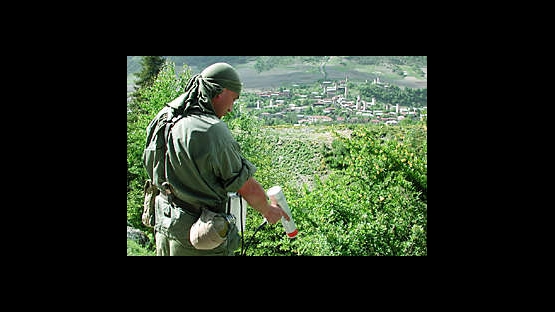The IAEA's action plan to upgrade nuclear security worldwide - put into place within months of the September 2001 terrorist attacks in the USA - is targeting a range of priorities, and making important headway.
High on the list is the protection of nuclear facilities and material against attack, sabotage or theft. Agency missions - known as International Physical Protection Advisory Service (IPPAS) missions - have already advised Bulgaria, Czech Republic, Lithuania and Romania on ways to strengthen the physical protection of their nuclear facilities and materials. IPPAS missions are among the many and varied strategic measures the IAEA is using to help States upgrade levels of nuclear security.
The action plan was developed in the wake of the September 11 attacks in the United States last year, and is being implemented in earnest. "We moved rapidly to respond," said IAEA Director General Mohamed ElBaradei. "Though the primary responsibility lies with States themselves, everyone realizes that we must work together to ensure effective national and international systems of nuclear security."
It is estimated the two-year action plan will cost about $12 million per annum. Voluntary contributions and pledges to fund it currently stand at about $8 million. (See table.) In a report, Progress on Measures to Protect Against Nuclear Terrorism, to be tabled at next week's IAEA General Conference, Mr ElBaradei calls upon all Member States to continue to contribute the resources needed for full implementation of the plan.
"Much more needs to be done. The focus of our efforts must be expanded to cover other nuclear facilities, including research installations that also have nuclear and other radioactive material but typically have less physical protection," Mr ElBaradei said.
Using the available funding, some of the Agency's activities to implement the action plan include:
- A joint IAEA-Indonesia workshop to promote enhanced nuclear security and combat illicit trafficking in the region under the ASEAN framework;
- Extensive activity to assist States in controlling radioactive sources - including helping secure a powerful cobalt source abandoned in a former hospital in Afghanistan;
- Conducting physical protection training courses in Egypt and the US, with further courses planned for China and India;
- Conducting Design Basis Threat workshops in Armenia, Kazakhstan, Russia, Slovakia, Slovenia and the Ukraine;
- Training courses for front line officers most likely to encounter radioactive material in Azerbaijan and Cyprus;
- A joint security/safety workshop in Pakistan, with more workshops planned for Korea and Iran;
- A workshop on illicit trafficking issues for States in South-Eastern Europe; and
- Regional training on nuclear forensics in Germany.
See here for a detailed summary of the progress to date in implementing the IAEA nuclear security action plan.


